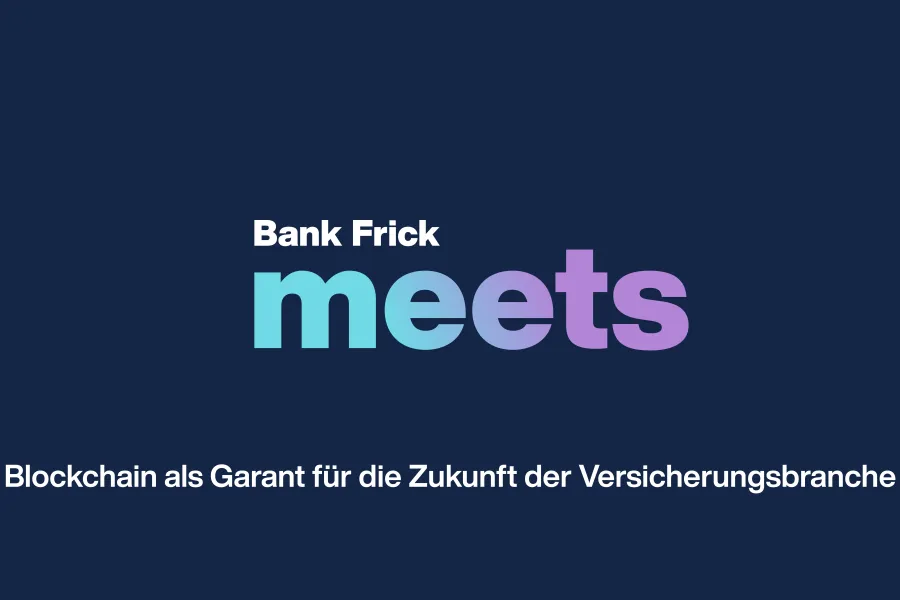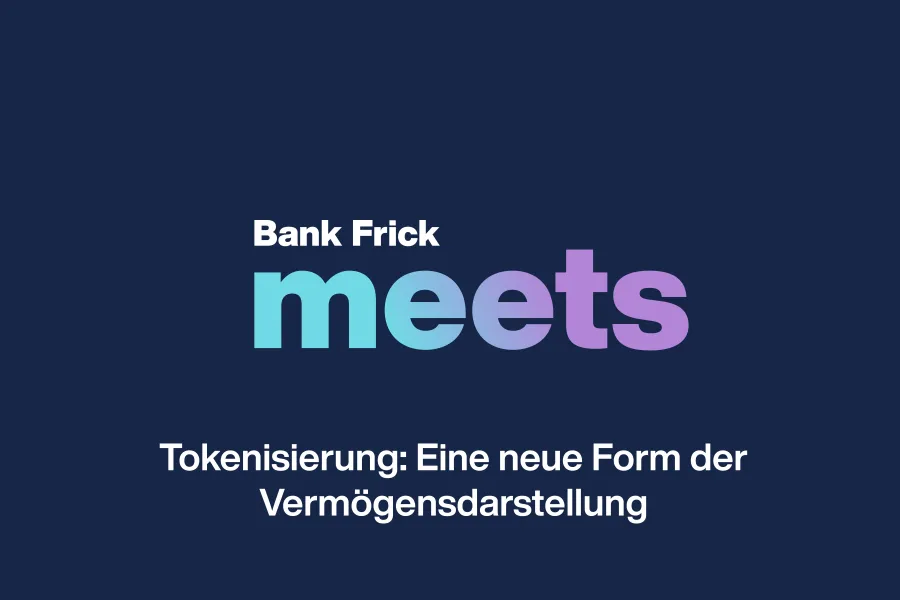Security Token Offering: Advantages of an STO over traditional issuance programs
Together with Lindemann Attorneys at Law, our experts Raphael Haldner and Julian Grezinger investigated the question of what the benefits of Security Token Offerings (STO) are. Find the answers to five frequently asked questions relating STOs in our new blog post.
What is an STO?
STO stands for Security Token Offering and describes the process of issuing digitized securities via the primary market to finance projects or assets. Another term for Security Token is therefore Asset Token.
The term is a reference to the term IPO (initial public offering), which is more familiar to traditional investors and is used in connection with the initial offering of shares to the public.
In contrast to an IPO, the term STO includes other types of securities in addition to shares. Such as bonds, fund units or derivatives.
In summary, it is a fund-raising activity using blockchain technology. All “securities” are created and mapped on the blockchain in the form of a token.
What are the advantages of an STO over traditional issuance programs?
The Blockchain is in most cases a decentralized operated system, which is forgery-proof and does not depend on the opening hours of an operator. As a result, investors and issuers are free to initiate and settle their transactions 24/7.
Smart Contracts can also be used to embed intelligent functions that automatically and independently take over important regulatory obligations or sales restrictions. This reduces the susceptibility to errors and increases efficiency, which ultimately has a positive effect on transaction costs.
One of the most important advantages is the immediate settlement, which can even be guaranteed in the absence of a classical intermediary/trustee.
What are currently the biggest challenges for issuers and investors in the STO market?
Although in large parts of the world there is a great movement in the area of regulation and legislation for crypto assets / security tokens, there are still reservations about the technology, especially in the institutional sector. Thus, one of the major drivers for a successful capital procurement is still missing.
In order to attract institutional investors to block-chain based securities issuances, the financial market infrastructure must continue to develop. This includes, above all, regulated markets exhibiting deep liquidity as well as selection of reputable custodians.
Will financial institutions become obsolete when block-chain technology takes over?
It is particularly important to have a professional partner at hand for compliance with regulatory requirements and for investor protection purposes. Moreover, these token transactions are still securities transactions in the true sense of the word. Before the information in digital form is put on the block chain, professional advice is certainly recommended.
However, block-chain technology will certainly have an impact on the service offerings of financial institutions.
The most important part is strict compliance with due diligence obligations and measures to prevent money laundering and terrorism financing. Financial institutions as well as regulated crypto-asset service providers will have to develop into trusted “gatekeepers”, as already in the traditional world, to ultimately protect the integrity of the new financial markets.
What financial instruments to choose from legally / for tax purposes?
In principle, a security token is merely a “container” for a security – e.g. bond, share, fund unit or Derivative – or shared ownership in an asset. In terms of the rights and obligations of the issuer and investor, there are no differences to the classic “world” – which can still be a major challenge for the purpose of structuring and implementation at times. Depending on the Jurisdiction and financial instruments Legal and tax advice remains key.
However, in contrast to previous processes, there is great potential to improve the efficiency and transparency of transactions.
Share post


Auch interessant

Vom Code zur Wirkung: Mit Blockchain zu mehr Transparenz und Effizienz
Die Blockchain-Technologie, bekannt geworden durch Laszlo Hanyecz' berühmten Pizzakauf 2010, hat sich weit über digitale Währungen hinaus entwickelt. Mit ihren Eigenschaften – Dezentralisierung, Transparenz und Unveränderbarkeit – ermöglicht sie effiziente und sichere Transaktionen ohne Mittelsmänner. Besonders Smart Contracts haben die Einsatzmöglichkeiten der Blockchain erweitert, etwa in Bereichen wie Lieferketten, Automatisierung und grenzüberschreitende Zahlungen.
Kritiker äußern Bedenken hinsichtlich Energieverbrauch und Komplexität, doch moderne Blockchains sind energieeffizienter geworden und durch benutzerfreundliche Schnittstellen leichter zugänglich. Im Non-Profit-Sektor bietet Blockchain großes Potenzial: Spenden können transparent, kostengünstig und nachvollziehbar vom Spender direkt zum Empfänger übertragen werden, wodurch Effizienz und Wirkungsnachweis deutlich verbessert werden. Die Technologie markiert somit den Beginn einer neuen Ära von Vertrauen und Zusammenarbeit.

Einblicke in den Prozess der Gestaltung von AMCs
Actively Managed Certificates (AMCs) haben sich zu einem bedeutenden Bestandteil des europäischen Finanzmarktes entwickelt. Als strukturierte Produkte, rechtlich als Schuldverschreibungen klassifiziert, bergen sie für den Investor ein entsprechendes Gegenparteienrisiko, vergleichbar mit anderen strukturierten Finanzprodukten. AMCs werden in Form von Wertpapieren verbrieft, die den jeweiligen Inhaber das Recht auf Geldrückzahlung oder Lieferung eines Basiswertes geben. Durch den Erwerb wird der Investor somit zum Gläubiger des Emittenten und begibt sich in eine Abhängigkeit im Hinblick auf die Art und Höhe der Rückzahlung, die von verschiedenen Parametern abhängig ist.

Direct Market Access – Effiziente Handelsabwicklung für Fondsstrategien
Liechtenstein verfügt über eine langjährige Tradition in den Bereichen Banking und Asset-Management. Seit dem EWR-Beitritt im Jahr 1995 hat sich der liechtensteinische Finanzplatz sukzessive als fachkundige Anlaufstelle für Promotoren von kollektiven Anlagestrukturen auf dem europäischen Finanzmarkt etabliert.

Blockchain als Garant für die Zukunft der Versicherungsbranche
Der Versicherungsmarkt ist ein wesentlicher Bestandteil der Weltwirtschaft und deckt sowohl persönliche als auch geschäftliche Risiken ab. Es ist daher nicht verwunderlich, dass es sich um eine der grössten Branchen der Welt handelt, die einen geschätzten Wert von etwa 5 Billionen US-Dollar aufweist und rund 2,7 Millionen Menschen auf der ganzen Welt beschäftigt. Von den 5 Billionen US-Dollar entfallen rund 3,7 Billionen US-Dollar auf den weltweiten Lebensversicherungsmarkt, während der Wert des Schaden- und Unfallversicherungsmarktes bei 1,3 Billionen US-Dollar liegt.

Tokenisierung: Eine neue Form der Vermögensdarstellung
Seit Anbeginn der Zeit haben die Menschen gejagt und gesammelt und sich das, was sie fanden, zu eigen gemacht. Dies ist die Zeit, in der das Konzept der besitzfähigen Vermögenswerte zum ersten Mal auftaucht, wenn auch nur in rudimentärer Form. Seitdem haben sich die Vermögenswerte weiterentwickelt und sind komplexer geworden, weil die Menschen zuverlässigere Wege gefunden haben, Vermögenswerte mit Menschen zu verbinden. Heutzutage schliessen Menschen bei der Übertragung von Vermögenswerten Verträge ab.

Blockchain: A technology with social impact
Foundational technology is the most effective tool for impacting society at large and solving the challenges it is faced with. One such foundational institutional technology is the blockchain, which entered the picture through the discovery of Bitcoin in 2009 and has since proliferated and emerged in many different forms.
What does blockchain’s social impact look like?

Wie uns Blockchain-Technologie in der digitalen Zukunft vor Angriffen schützt
Die Blockchain-Industrie verzeichnet seit einigen Jahren ein signifikantes Wachstum. Krypto-Start-ups schiessen aus dem Erdboden, und eines nach dem anderen scheint sich als «Einhorn» zu erweisen. In unserer neuen Reihe werden wir diese Technologie in Blogposts und Webinaren genauer unter die Lupe nehmen und erörtern, weshalb sie so erfolgreich ist und überall im Zentrum des Interesses steht. Dabei werden wir uns weniger mit dem spekulativen Aspekt befassen, mit dem die Blockchain häufig in Verbindung gebracht wird, sondern vielmehr untersuchen, inwiefern sie reale Probleme lösen kann.

Wie klassische Finanzintermediäre in der Krypto- und Blockchain-Welt Fuss fassen können
Mit zunehmender Selbstverständlichkeit fragen immer mehr Kunden nach Dienstleistungen rund um Kryptowährungen. Für Finanzintermediäre eröffnet diese Nachfrage neue Geschäftsmöglichkeiten. Um das Potenzial heben zu können, müssen die Akteure aber auch das Spezialwissen zur Verfügung haben.

Blockchain technology reinvents correspondent banking – just not yet
As one of its major use cases, blockchain technology is said to transform traditional correspondent banking. So far major challenges have pushed back this transformation. It is more likely than ever that with central bank digital currencies on the horizon; blockchain disruption will finally come to fruition in the realm of cross-border banking.

Turning crypto investment into an earning asset
With Ethereum upgrading to Proof of Stake, the crypto world is going through one of its most transformative shifts to date. This means that customers will soon be able to earn interest on their digital asset holdings through a process called staking. What staking is, how it will define the future of Ethereum and digital asset custody at large is explained in this article.